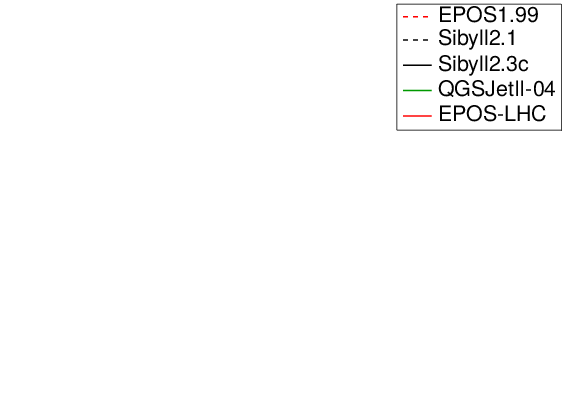| Article | |
| Report number | arXiv:1810.00642 |
| Title | Recent results from the cosmic ray program of the NA61/SHINE experiment |
| Author(s) | Prado, Raul R. (DESY, Zeuthen ; KIT, Karlsruhe, IKP ; Sao Paulo U., Sao Carlos) |
| Collaboration | NA61/SHINE Collaboration |
| Publication | 2019 |
| Imprint | 2018-10-01 |
| Number of pages | 8 |
| Note | 8 pages, 9 figures. To appear in the proceedings of the 20th International Symposium on Very High Energy Cosmic Ray Interactions (ISVHECRI 2018), Nagoya, Japan |
| In: | EPJ Web Conf. 208 (2019) 05006 |
| In: | 20th International Symposium on Very High Energy Cosmic Ray Interactions, Nagoya, Japan, 21 - 25 May 2018, pp.05006 |
| DOI | 10.1051/epjconf/201920805006 |
| Subject category | hep-ex ; Particle Physics - Experiment |
| Accelerator/Facility, Experiment | CERN SPS ; SHINE NA61 |
| Abstract | NA61/SHINE is a fixed target experiment designed to study hadron-proton, hadron-nucleus and nucleus-nucleus interactions at the CERN Super-Proton-Synchrotron. In this paper we summarize the results from pion-carbon collisions recorded at beam momenta of 158 and 350 GeV/c. Hadron production measurements in this type of interactions is of fundamental importance for the understanding of the muon production in extensive air showers. In particular, production of (anti)baryons and $\rho^0$ are mechanisms responsible for increasing the number of muons which reaches the ground. The underestimation of the (anti)baryons or $\rho^0$ production rates in current hadronic interaction models could be one of the sources of the excess of muons observed by cosmic ray experiments. The results on the production spectra of $\pi^{\pm}$, K$^{\pm}$, p, $\bar{\text{p}}$, $\Lambda$, $\bar{\Lambda}$, K$^{0}_\text{S}$, $\rho^0$, $\omega$ and K$^{0*}$ are presented, as well as their comparison to predictions of hadronic interaction models currently used in air shower simulations. |
| Copyright/License | preprint: (License: arXiv nonexclusive-distrib 1.0) |
Corresponding record in: Inspire
ჩანაწერი შექმნილია 2018-10-03, ბოლოს შესწორებულია 2019-08-28
